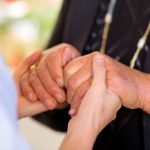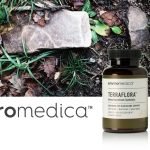Opioid Use Increases Risk of Pneumonia
Node Smith, ND
Taking prescribed opioids raises the risk of pneumonia, new Yale-led study finds
The study, published in JAMA Internal Medicine, reinforces the concern that prescription opioid painkillers have a negative impact on the immune system. It also underscores the need for awareness among opioid prescribers who can take steps to minimize the risk of pneumonia through vaccination and promoting smoking cessation, the researchers said. To their knowledge, this is the first study to examine the impact of prescribed opioids on pneumonia risk in patients with HIV.
There’s evidence that some opioids — including codeine, fentanyl, and morphine — suppress the immune system and limit the body’s ability to fight bacterial infections
Opioids are commonly prescribed to individuals for pain, especially those with HIV. However, there’s evidence that some opioids — including codeine, fentanyl, and morphine — suppress the immune system and limit the body’s ability to fight bacterial infections, such as pneumonia. To investigate the link between prescribed opioids and pneumonia, the research team analyzed data from patients enrolled in the Veterans Aging Cohort Study, a national study of individuals who receive care through the Veterans Health Administration (VA).
Research team conducted the study using data from individuals who were treated at a VA between 2000 and 2012
The research team conducted the study using data from individuals who were treated at a VA between 2000 and 2012. They included patients living with and without HIV. The team matched patients hospitalized for pneumonia with similar patients who did not have pneumonia. In their analysis, the researchers looked at length of time patients were taking opioids, as well as dosages and whether the medications had known immunosuppressive properties or not.
The researchers found that patients prescribed medium or high doses of opioid painkillers were at greater risk for pneumonia than those not taking the medications. The risk was compounded if the opioid contained immunosuppressive properties. Individuals with HIV tended to be more likely to develop pneumonia even at low doses of opioids and especially with immunosuppressive opioids.
“We saw that prescription opioids were independently associated with pneumonia requiring hospitalization,” said E. Jennifer Edelman, M.D., the corresponding author and an associate professor at Yale School of Medicine.
Prescription opioids can impact the body’s defenses against pneumonia in a multitude of ways
Prescription opioids can impact the body’s defenses against pneumonia in different ways, the researchers said, including by suppressing cough, respiration, and mucus secretion. The study “lends credence to the hypothesis that opioids have effects on the immune system that are clinically relevant,” Edelman noted.
Raising awareness of the increased pneumonia risk among providers and patients
In addition to raising awareness of the increased pneumonia risk among providers and patients, the findings could lead to changes to mitigate that risk and add to the growing list of potential harms associated with these medications. Providers could consider prescribing lower doses of opioids or opioids that do not suppress the immune system, the researchers said. They can also be proactive about getting patients, especially those with HIV, vaccinated against pneumonia.
 Node Smith, ND, is a naturopathic physician in Portland, OR and associate editor for NDNR. He has been instrumental in maintaining a firm connection to the philosophy and heritage of naturopathic medicine among the next generation of docs. He helped found the first multi-generational experiential retreat, which brings elders, alumni, and students together for a weekend camp-out where naturopathic medicine and medical philosophy are experienced in nature. Four years ago he helped found the non-profit, Association for Naturopathic ReVitalization (ANR), for which he serves as the board chairman. ANR has a mission to inspire health practitioners to embody the naturopathic principles through experiential education. Node also has a firm belief that the next era of naturopathic medicine will see a resurgence of in-patient facilities which use fasting, earthing, hydrotherapy and homeopathy to bring people back from chronic diseases of modern living; he is involved in numerous conversations and projects to bring about this vision.
Node Smith, ND, is a naturopathic physician in Portland, OR and associate editor for NDNR. He has been instrumental in maintaining a firm connection to the philosophy and heritage of naturopathic medicine among the next generation of docs. He helped found the first multi-generational experiential retreat, which brings elders, alumni, and students together for a weekend camp-out where naturopathic medicine and medical philosophy are experienced in nature. Four years ago he helped found the non-profit, Association for Naturopathic ReVitalization (ANR), for which he serves as the board chairman. ANR has a mission to inspire health practitioners to embody the naturopathic principles through experiential education. Node also has a firm belief that the next era of naturopathic medicine will see a resurgence of in-patient facilities which use fasting, earthing, hydrotherapy and homeopathy to bring people back from chronic diseases of modern living; he is involved in numerous conversations and projects to bring about this vision.








